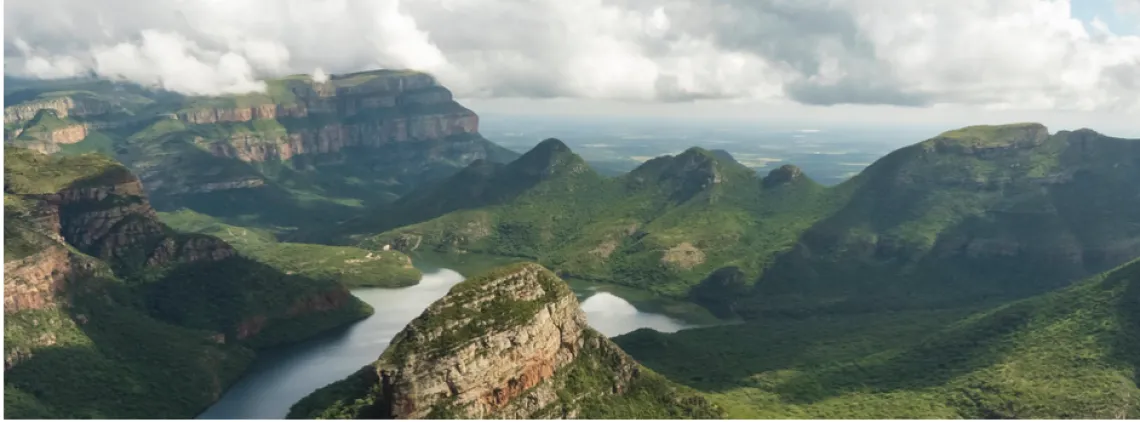G-WADI Leads CRIDA Workshop in Kruger National Park, South Africa

Kruger to Canyonlands Biosphere Reserve. Photo Credit: UNESCO ROSA.
A Climate Risk Informed Decision Analysis (CRIDA) Workshop was held in Hazyview, northeastern South Africa during 11-12 March 2020. It was organized and funded by Kruger National Park and led by UNESCO G-WADI. Additional support came from UNESCO's CliMWaR project, with funding from the Government of Flanders.
CRIDA is a five-step, collaborative bottom-up water resources planning framework to address deep uncertainties associated with climatic, demographic and land-use change. The CRIDA approach was jointly developed by UNESCO G-WADI, the Alliance for Global Water Adaptation (AGWA), Deltares, the International Center for Integrated Water Resources Management (ICIWaRM) and others, and has now been used globally for planning water resources infrastructure.
The objectives of the workshop was to transfer knowledge and technologies to address climate change impacts on water resources. To engage with stakeholders and evaluate the interests, and lastly to identify pilot areas for the implementation of CRIDA in the Kruger to Canyons Biosphere Region.
According to Mbali Mashele of the Biosphere Reserve, 16 participants attended the workshop from irrigation boards, NGOs, municipalities and the private sector. Dr Koen Verbist, from UNESCO’s Regional Office for Southern Africa in Harare, Zimbabwe, led the workshop.
Participants were trained on the 4 out of 5 steps of CRIDA, and these are 1) participatory scoping and problem definition; 2) bottom-up vulnerability assessment; 3) strategy development, including formulation of adaptation pathways; 4) formulation and evaluation of alternatives. Engagement with stakeholders is a key aspects of the approach, and was emphasized throughout the workshop.
Follow-up work will include modeling of some of the watersheds flowing into the park, followed by identification of how the environmental flows that are critical to maintaining wildlife in the area including the park could be affected by climate change projections. Further work with stakeholders is planned for subsequent engagements.
